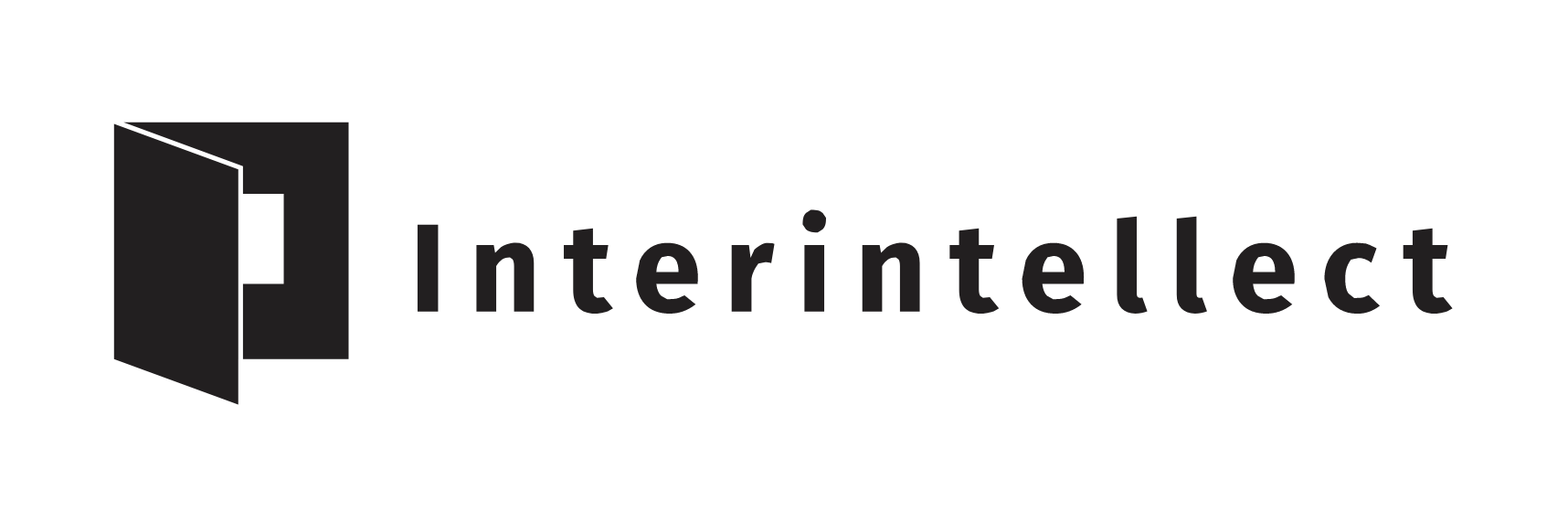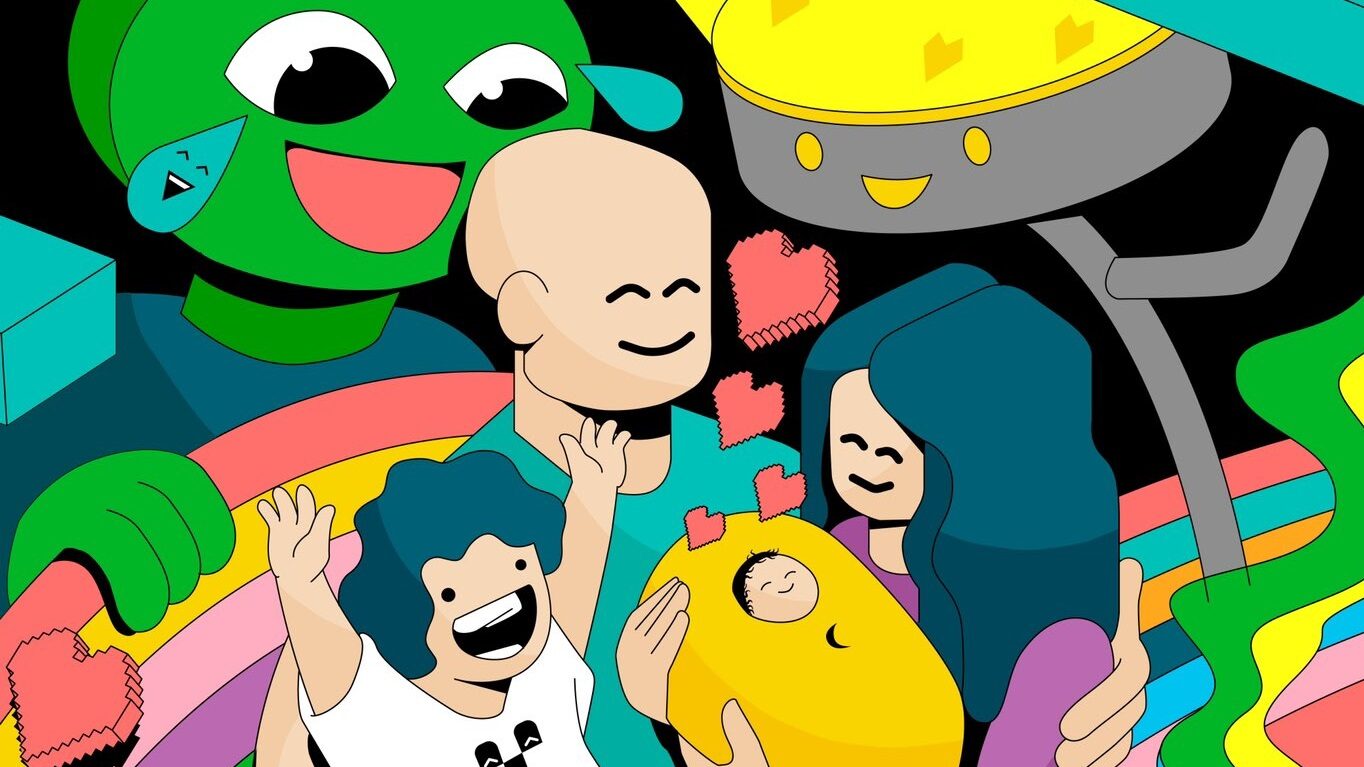This is a recap of the recent SuperSalon, Taking a Step into the Infinite, Bringing it Back to the Finite. You can watch a full recording of the event here, or read on for some of the key ideas.
When it comes to the new information age — who should it benefit? How do we make it happen? These questions are explored in a recent Interintellect SuperSalon with Amjad Masad and Haya Odeh, founders of the start-up Replit. Replit may very well change the world in bringing the next billion software creators online. Their end goal is to give people the agency to bring their ideas to life in society and use coding and programming freely.
Hosted by Violeta Kristóf, the three discussed the gaps between software from a creator and consumer’s standpoint (and how tech may bolster creativity overall), how to optimize from a finite level and from a faith-based level, and how rationality and idealism must exist side by side in a new information age for innovation to have its place.
Replit’s Mission to Democratize Coding
Right now, there’s an alarming gap in everyone having the same ability to create efficient ways to have their ideas actualized. You may have a great idea for a business but never have the means to code it into being. This is where technology fluency unfortunately gets in the way. So many ideas for communal spaces, servies, etc. never take off because there are only so many programmers to fill the need, and much less programmers who would share the same values.
That’s a creative agency problem that Masad and Odeh want to solve. Replit’s objective is to spread code literacy, facilitating ways for users to learn and execute programming basics. Thus this company’s target audience isn’t experienced programmers; it’s geared toward bringing the everyday person into the space where they can build an app, create software, write code, and learn to code as fluently as if they were writing an essay.
Simplifying Software Can Democratize The World
Many people with the means to solve problems don’t have the actual technological background to do it. Odeh insists we need to ask very simple questions and not take hand waving for an answer, and simplify a lot of things. Often, the simple questions are foundational to seeing if your product is even viable.
Odeh emphasized this is a principle for democratizing everything, not just technology. Designing virtually anything requires one to reach into the root of why that thing works, and also understand the root cause of both products and solutions. Exhausting yourself with curiosity prevents future problems and gives you a better chance of replication of your process.
Programming is just a tool, but who is programming is a sociological feat that Replit wants to illuminate to others. If you could make your life more efficient (i.e. changing the radio button that’s broken on an online shop’s checkout window, as Odeh needed to do and code her way through), then it’s worth considering. The idea was posed that if people who are natural writers and good with words can make great art, then those same people can also make great software. But how will they without technological fluency?
Technological Classism’s Influence on Society
In the past, during the Industrial Revolution age, the economy was relying on people getting industrial jobs to stay afloat. Now, Masad refers to this era as “the information age,” where society is built on automations, software, and the Internet to work, pay, get services, socialize, travel, and more.
But in this new society, we also see “tech advantage” classism emerging even in classrooms. Children whose families have access to the Internet have more time to learn how to be a “creator” on the Internet (i.e. learn code, or generally have the time to play around with the language), versus children who are relegated to “consumers” because their families are less well off, illustrate the imbalance in the technological world that can start from way far back. This creates a bigger gap growing up, as tech jobs pay the most.
Thus, software needs to be creative and accessible to even the everyday child, so we can create equality in knowledge and also creativity itself in an innovative way.
A.I. Will Make Creativity Efficient, Not Destroy It
A question posed was concerned with how A.I. tools would influence the creative process. Would this be a problem, for them to displace humans themselves in the workforce? Masad was confident it would not inhibit the process, but in turn actually promote more of a human’s creative zone of genius. This comes through cutting out the repetition, and making certain foundational basics less tedious and laborious.
The actual programming part where it requires solving a problem, broken down to its different components — Masad is more skeptical. Even the most advanced artificial general intelligence (AGI) that could get even close could not replace human consciousness itself and its abstractions.
Rather than follow a series of commands, as A.I. is good at doing, critical thinking can’t be replaced, at least not right now. Masad believes it’ll conversely make people able to focus on their zone of genius, and how to make programming fun and fulfilling for them. The creativity of the programmer is still going to be necessary for a long time, because all A.I. is is a tool.
Creativity is Driven By Both Faith and Secularism
Interintellect founder Anna Gát was curious about how the intersection of faith, rationalism, and innovation came in. Masad said that while the “finite” world is quite effective at optimization, which is one sort of way to make progress — he also thinks that without faith, your ideas won’t take off or have legs.
“If you want to invite something totally radical, you do need to have some type of faith,” Masad said. He wasn’t referring to organized religion, but more so, the faith in something greater than you that he calls a “driver.”
“I think the overly scientific mind closes off potentials that seem kind of crazy,” he said. “It’s about optimization vs. exploration.”
Masad does believe that we lose something when we try to be extremely rational and abstain from committing to your dream, even if you need to take leaps of faith, and in order to sometimes believe in yourself enough to keep going. He also wonders if we have to create a new religion, one dealing in how we should seek guidance about how we interact with the digital world and what’s right/wrong in our digital lives, so everything feels less hyper-real. A religion, so long as it’s based upon the same values of returning agency to democracy, doesn’t sound half bad.
Live in the future for your agency and your future literacy
Long term vision is not rewarded as much as dwelling on the past because of uncertainty, Masad said. The past feels more certain. Meanwhile, who knows what’s going to happen tomorrow, and because you don’t, how can you plan for the long term?
But try anyway, he insists. Living in the future, not from a point of fixation or escape or avoidance, exercises your agency. And that does define the future we’re creating. Masad wants to focus on the parts that regard technology as a way to increase freedom, like message encryption, Bitcoin, and more.
If Replit succeeds in its expansion, Masad projects this programming-centric agency will lead to a lot more entrepreneurship, startups, exciting new software from the hearts of artists, and a more happy, connected, equalized society that can benefit its fellow citizens even better.

